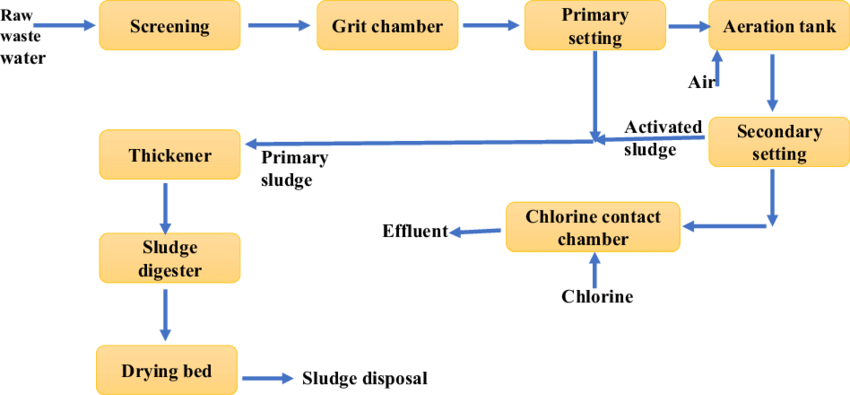About Reclaim Waste
About Reclaim Waste
Blog Article
Getting The Reclaim Waste To Work
Table of ContentsFascination About Reclaim Waste9 Easy Facts About Reclaim Waste ShownSome Known Facts About Reclaim Waste.Reclaim Waste Can Be Fun For AnyoneWhat Does Reclaim Waste Do?
Explore the kinds, incidents, and forms of fluid waste. Domestic sewer waste describes the waste and products from a residential sewage-disposal tank. This type of waste is produced by people in homes, institutions, and various other structures. This only includes septic systems that have a drainpipe field. The correct administration and disposal of domestic sewer waste require fluid waste to be transferred to a sewage therapy plant where the proper methods and devices are used to detoxify and deal with waste.
Business waste commonly consists of possible hazards, such as combustible products or a mix of liquid and strong waste products, and needs an advanced and comprehensive disposal process. The disposal of business waste usually includes the filtration of waste before transport to make certain safe and appropriate disposal. Hazardous waste is created from by-products and overflow of commercial procedures and manufacturing.
This kind of waste can not utilize the same sewage monitoring transportation or processes as septic or industrial liquids. The industrial waste monitoring procedure calls for the assessment and testing of liquid waste before it goes through the disposal process (liquid waste removal). Overflow waste is the fluid waste that originates from drainage and excess stormwater in very booming locations or cities
Drainage waste can create contamination and flooding otherwise handled correctly. Learn much more regarding drain cleansing and waste monitoring. Guaranteeing appropriate waste monitoring can protect against calamities and lower ecological damage. Both individuals in domestic settings and specialists in business or production industries can gain from recognizing the processes and policies of liquid waste monitoring.
Not known Facts About Reclaim Waste
Call PROS Services today to learn more about our waste management and disposal services and the proper means to care for the liquid waste you create.
(https://hearthis.at/leon-aube/set/reclaim-waste/)Do you know what happens to your water when you end, flush the commode or drain the washing equipment? No? Well, it's worth recognizing. This so-called 'wastewater' is not just a vital source however, after treatment, will be released to our land, rivers or the ocean. Used water from commodes, showers, baths, kitchen area sinks, laundries and commercial processes is referred to as wastewater.

water utilized to cool down equipment or clean plant and devices). Stormwater, a kind of wastewater, is overflow that moves from agricultural and metropolitan locations such as roofing systems, parks, yards, roads, paths and rain gutters right into stormwater drains, after rain. Stormwater moves neglected straight to local creeks or rivers, ultimately reaching the ocean.
Not known Facts About Reclaim Waste
In Queensland, the majority of wastewater is dealt with at sewer treatment plants. Wastewater is carried from visit site residential or commercial websites with a system of drains and pump terminals, recognized as sewage reticulation, to a sewer therapy plant. City governments build, maintain and operate most sewer therapy plants. Operators are accredited under the Environmental Security Act 1994 to release cured wastewater at an appropriate environmental criterion into waterways.
The Division of Natural Resources encourages city governments regarding managing, operating and maintaining sewage systems and therapy plants. In unsewered areas, regional governments might need homeowners to install individual or household sewer treatment systems to treat residential wastewater from commodes, kitchen areas, shower rooms and laundries. The Division of Natural Resources authorizes making use of home systems when they are shown to be effective.
In some new class, treatment of some stormwater to eliminate litter, sand and crushed rock has actually begun making use of gross pollutant catches. Wastewater treatment happens in 4 stages: Gets rid of solid matter.
Wastewater then streams into big containers where solids work out and are removed as sludge. Grease and residue are skimmed from the surface. Utilizes little living organisms referred to as micro-organisms to damage down and remove staying liquified wastes and fine fragments. Micro-organisms and wastes are included in the sludge. Removes nitrogen and phosphorus nutrients that might create algal blooms in our waterways and endanger marine life.
Indicators on Reclaim Waste You Should Know
Nutrient elimination is not readily available at all sewage treatment plants since it needs pricey specialist devices. It is becoming a lot more typical in Queensland. Clear fluid effluent generated after treatment may still have disease-causing micro-organisms. If this effluent is launched right into waterways such as rivers or the sea, the micro-organisms will ultimately pass away out.

This usually suggests wastewater has actually to be treated or impurities gotten rid of before it can be discharged to rivers. Many wastewater flows right into the sewage system. Under the Act, local federal governments provide approvals and permits for ecologically relevant tasks (ERAs) entailing wastewater releases that might have a neighborhood effect. The department carries out approvals and permits to Periods including wastewater launches that may have a regional or statewide influence.
Not known Details About Reclaim Waste
Otherwise, examples are considered lab evaluation. Often numerous examinations are required to develop the levels of each of the different contaminants such as oils, hefty steels and chemicals in water. Surveillance provides factual info regarding water high quality and can validate that permit problems are being fulfilled. The details gotten via monitoring offers the basis for making water high quality choices.
Report this page